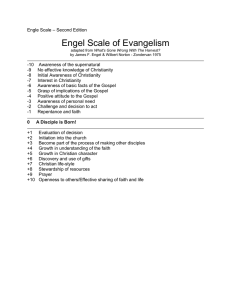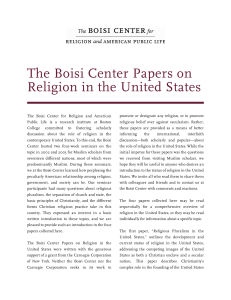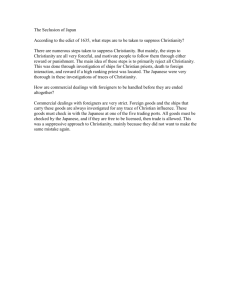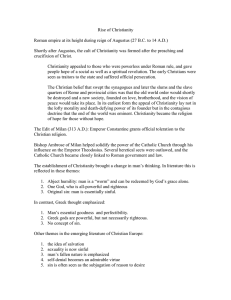CAMBRIDGE DICTIONARY OF CHRISTIANITY. Children.
advertisement
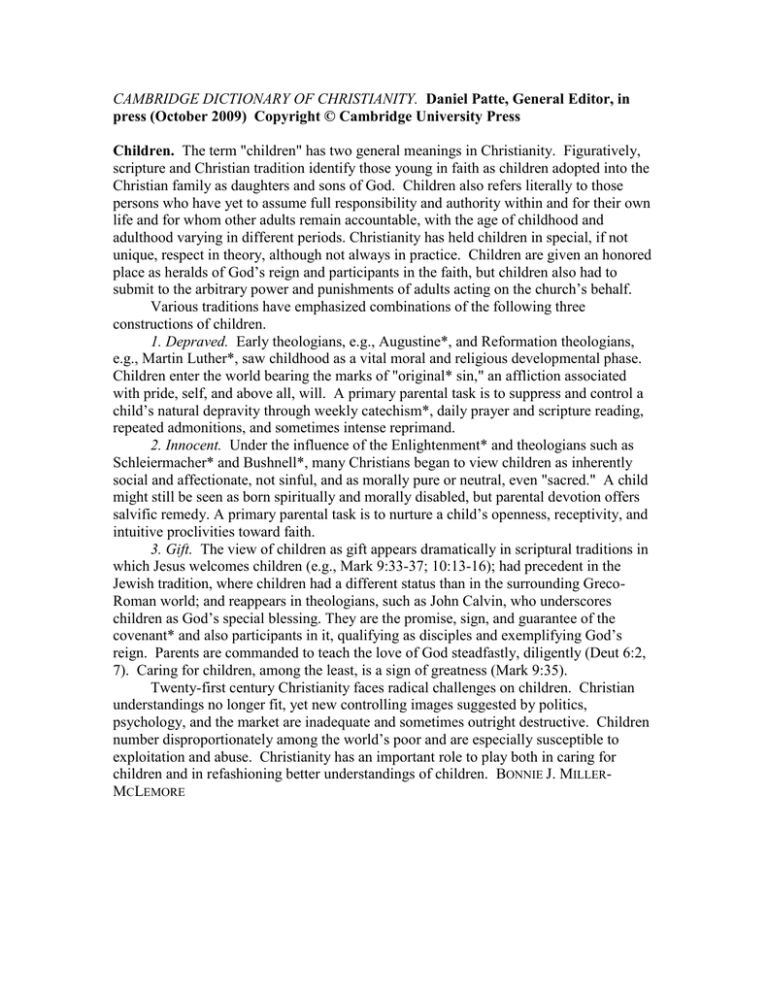
CAMBRIDGE DICTIONARY OF CHRISTIANITY. Daniel Patte, General Editor, in press (October 2009) Copyright © Cambridge University Press Children. The term "children" has two general meanings in Christianity. Figuratively, scripture and Christian tradition identify those young in faith as children adopted into the Christian family as daughters and sons of God. Children also refers literally to those persons who have yet to assume full responsibility and authority within and for their own life and for whom other adults remain accountable, with the age of childhood and adulthood varying in different periods. Christianity has held children in special, if not unique, respect in theory, although not always in practice. Children are given an honored place as heralds of God’s reign and participants in the faith, but children also had to submit to the arbitrary power and punishments of adults acting on the church’s behalf. Various traditions have emphasized combinations of the following three constructions of children. 1. Depraved. Early theologians, e.g., Augustine*, and Reformation theologians, e.g., Martin Luther*, saw childhood as a vital moral and religious developmental phase. Children enter the world bearing the marks of "original* sin," an affliction associated with pride, self, and above all, will. A primary parental task is to suppress and control a child’s natural depravity through weekly catechism*, daily prayer and scripture reading, repeated admonitions, and sometimes intense reprimand. 2. Innocent. Under the influence of the Enlightenment* and theologians such as Schleiermacher* and Bushnell*, many Christians began to view children as inherently social and affectionate, not sinful, and as morally pure or neutral, even "sacred." A child might still be seen as born spiritually and morally disabled, but parental devotion offers salvific remedy. A primary parental task is to nurture a child’s openness, receptivity, and intuitive proclivities toward faith. 3. Gift. The view of children as gift appears dramatically in scriptural traditions in which Jesus welcomes children (e.g., Mark 9:33-37; 10:13-16); had precedent in the Jewish tradition, where children had a different status than in the surrounding GrecoRoman world; and reappears in theologians, such as John Calvin, who underscores children as God’s special blessing. They are the promise, sign, and guarantee of the covenant* and also participants in it, qualifying as disciples and exemplifying God’s reign. Parents are commanded to teach the love of God steadfastly, diligently (Deut 6:2, 7). Caring for children, among the least, is a sign of greatness (Mark 9:35). Twenty-first century Christianity faces radical challenges on children. Christian understandings no longer fit, yet new controlling images suggested by politics, psychology, and the market are inadequate and sometimes outright destructive. Children number disproportionately among the world’s poor and are especially susceptible to exploitation and abuse. Christianity has an important role to play both in caring for children and in refashioning better understandings of children. BONNIE J. MILLERMCLEMORE
